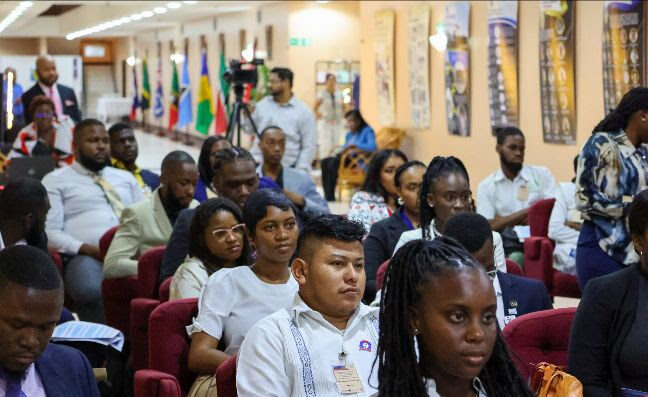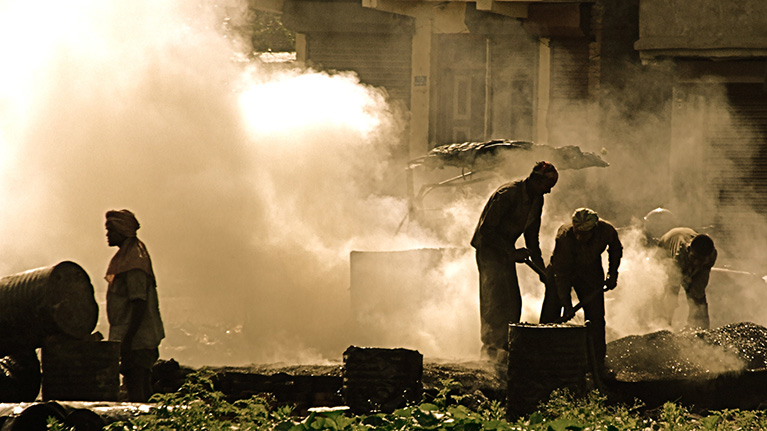This news article is a production distributed through Caribbean News Service. It is made freely available to your media and we encourage publishing and redistribution, giving credit to Caribbean News Service (CNS).
by Desmond Brown – Executive Editor
PARIS, France, Dec 04 2015 – The head of the Ocean Governance Unit (OGU) in the Organisation of Eastern Caribbean States (OECS) Dr. Asha Singh said ‘Blue Economy’ driven by the use of marine resources will play a pivotal role in the near future as resources on the earth are getting exhausted.
Speaking at a side event held at the Caribbean Pavilion at the UN Climate Change Conference (COP21), Dr. Singh said the OGU is leading efforts in the sub-region to develop the blue economy.
“The ocean for us in the OECS is our last frontier for economic development. It’s an incredible real estate as we look at finding ways to develop,” she said.
Noting that a lot of attention is being placed on the marine environment for its benefits for example the pharmaceutical benefits, Dr. Singh highlighted that one of the leading cancer-fighting drugs came from a Caribbean sponge, and around the world the marine plants and animals are being bio- prospected.
“The pharmaceutical industry is a multi-billion dollar industry, and with the recognition of biotechnology, some of our living resources may hold potential, therefore access and benefit sharing and intellectual property rights must be part of our governance. In this regard, the marine research mechanism which is part of the OECS oceans governance is critical,” she said.
Scientists say a Caribbean sponge has been discovered to generate compounds used in AZT (zidovudine, Retrovir), which is used to fight the AIDS virus. A Caribbean gorgonian (a soft coral) produces a group of compounds with anti-inflammatory properties, which are also included in an anti-wrinkle cream.
Meantime, Dr. Singh in looking at other activities highlighted the maritime sector and noted that while some OECS member states operate open registry, the region harbours a significant percentage of the global cruise and other maritime traffic, adding that “we need to ensure that good due diligence is being done in the oceans, hence we are working to update the navigational charts to make charting safer in the region”.
The OGU also identifies marine renewable energy as a potential area, and is working to establish a baseline assessment of the marine renewable potential in the region.
Dr. Singh noted that while currently the policy prescription and the policy direction in the OECS look more towards land based type renewable energy options, for example, geothermal and photovoltaic, marine renewable is also growing in its recognition worldwide, and so should the region.
“This is relevant, because as Small Island Developing States (SIDS), where land is limited, land based energy policy may face challenges, therefore we really need to look to the oceans as well, as that potential to drive our energy sustainability in both the short and long term.”
And with the advent of climate change, Dr. Singh said this poses significant challenges, as activities such as ocean acidification have the potential to derail efforts at sustainable governance and truly harnessing the economic potential in the context of the blue economy for the wellbeing of citizens.
Therefore, she noted the need for mainstreaming climate change to build greater climate resilience.
“The oceans are facing the brunt of climate change,” she said.




